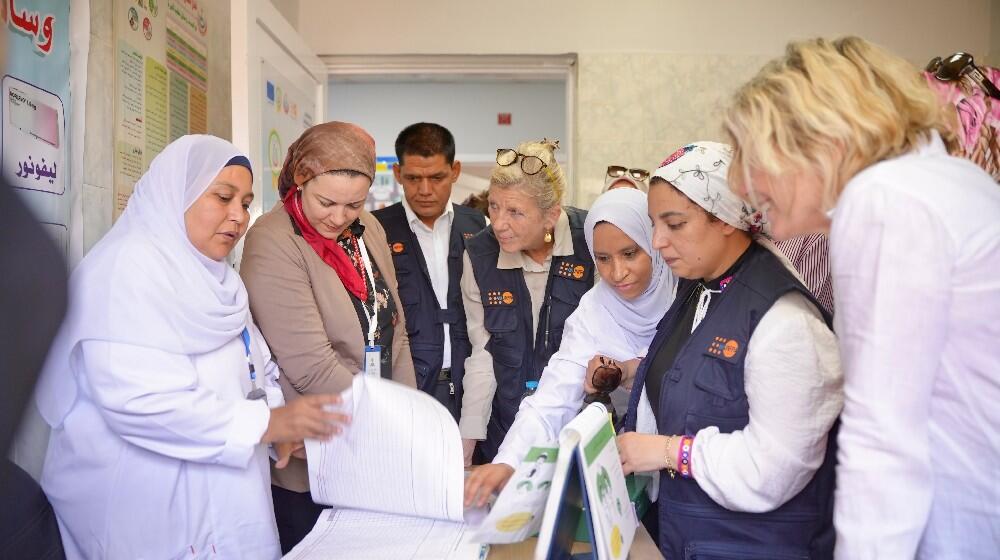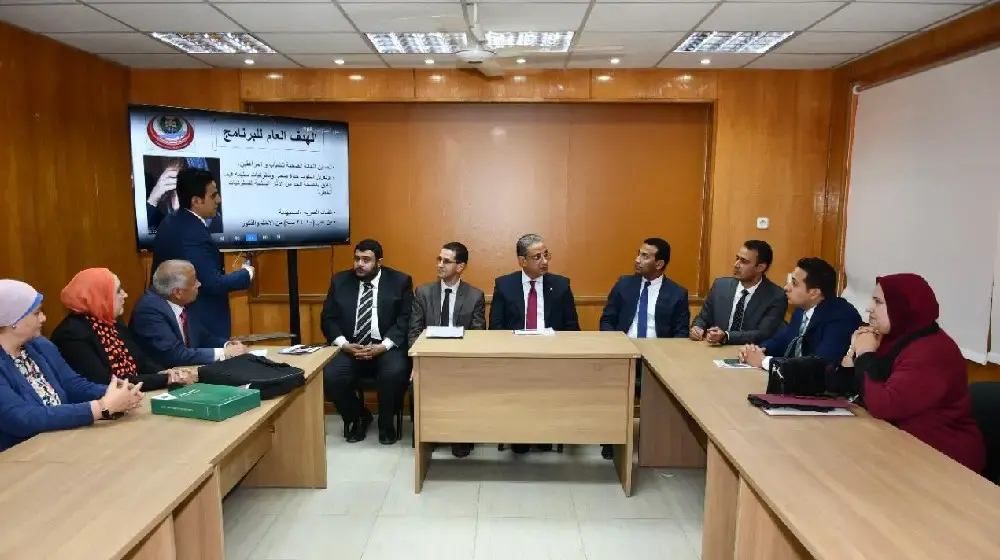A delegation from UNFPA, the European Union in Egypt (EU) and the Ministry of Health and Population conducted a visit to a family planning clinic along with a mobile clinic in Giza, to follow up on the progress of the EU Support to Egypt’s National Population Strategy project on June 12.
The delegation included Frederika Meijer, UNFPA Representative in Egypt, Sophie Vanhaeverbeke, Head of Cooperation, Delegation of the EU, Graziella Rizza, Head of Governance Section of the EU Delegation to Egypt, Neveen Ahmed, Governance and Gender Equality Programme Manager at the EU, Tej Ram Jat, Reproductive Health Programme Specialist at UNFPA, Maha Wanis, Reproductive Health Specialist at UNFPA and Dr. Nadia Saleh, Director General of the Contraceptives Department at the Ministry of Health and Population.
With the support of an EU-grant of 27 Million Euros, the project, which kicked off in 2018, aims at increasing the use of voluntary, rights-based family planning through improved supply of family planning services and commodities, increased demand for family planning, and enhanced governance for implementation of the National Population Strategy.
Prior to the visit, the delegation held a meeting with the Head of the Giza Health Directorate Dr. Sameh al-Ashmawy, during which they discussed the achievements of the project in Giza. Dr. al-Ashmawy explained that Giza governorate is unique in its characteristics since it houses people from both urban and rural cultures, and that is why it requires approaches that can speak to both.
According to Dr. Saleh, the EU Support to Egypt’s National Population Strategy project is the only one of its kind that supports family planning campaigns that promote rights-based family planning and offer free family planning services and commodities in the different governorates, especially in remote and underserved areas, through fixed and mobile clinics.
Unmet need for family planning in Giza decreased from 12.8 percent in 2014 to 10.7 percent in 2021, according to the Egyptian Family Health Survey (EFHS). This was achieved through awareness raising campaigns that dispel misconceptions around contraceptive use, Dr. al-Ashmawy said.
The delegation visited a mobile clinic in Giza, which offers family planning services to women in remote areas for free, as part of family planning campaigns by the Ministry of Health and Population, in cooperation with UNFPA, with the support of the EU.
The delegation then visited the Nazlet el-Semman Family Planning clinic, where they met with service providers and outreach workers, who relayed the services the clinic offers.
According to Head of the clinic, Dr. Abeer Ezzat, the clinic receives over 50 women every day who receive a variety of family planning services, including counseling, family planning methods and follow up.
She explained that the level of awareness around family planning methods has risen, and that more women visit the clinic to understand more about which family planning method is suitable for them.
The clinic also hosts a Women’s Health Club, where physicians, religious and community leaders hold awareness-raising seminars for women on family planning issues.




